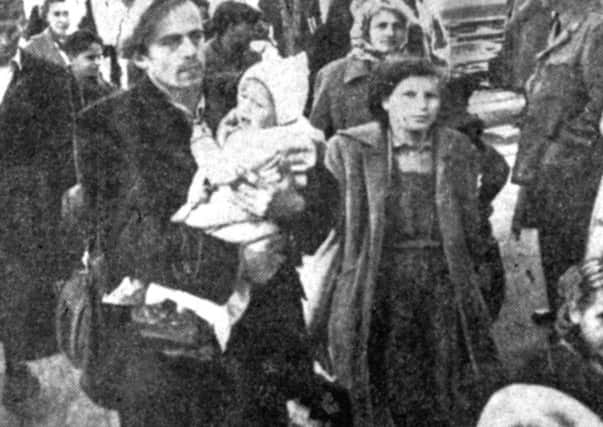When Yorkshire opened its arms to Hungary's refugees


Leeds has a proud history of welcoming immigrants. This was never more true than 60 years ago, when the people of Leeds – and elsewhere in Yorkshire – opened their homes to thousands of Hungarians fleeing the Soviet invasion of their homeland.
On November 4, 1956, Soviet leader Nikita Khrushchev ordered 60,000 troops along with thousands of tanks into Hungary in a decisive bid to crush a popular uprising against Communist rule.
Advertisement
Hide AdAdvertisement
Hide AdIn the weeks that followed, tens of thousands of Hungarians poured over the border into Austria, triggering a major humanitarian crisis – and a major outpouring of sympathy.
The following week more than 200 people gathered on the steps of Leeds University Students’ Union for a protest organized by the Union Catholic Society. Earlier, a couple of students had braved a 70-foot drop to paint “Hungary Help” in three-feet high letters on the front of the Parkinson Building. Standing behind a large banner that proclaimed, “We Mourn Hungary”, and carrying a large Union Jack and Hungarian flag, the protesters set off towards the city centre. The march was swelled by hundreds of shoppers and office workers and officials, armed with collection buckets, to which people gave generously and freely; one construction worker was so keen to contribute he threw down some money from his scaffolding.
The people of Leeds went on to raise £15,500 (around £250,000 in today’s money) for the Hungarian refugee relief fund. They weren’t alone. In Halifax, £2,402 7s 11d was collected, and the total in Bradford by early December was £11,140 – which included £100 from collection boxes that had been placed next to the tills at Busby’s department store.
Norman Alexander, a retired poultry farmer in Knaresborough, even offered a plot of land to build a house for a refugee family. Then in December a coach, donated by Wallace Arnold, set off from Leeds bound for Austria.
Advertisement
Hide AdAdvertisement
Hide AdFollowing a public appeal led by Lady Morris, chairwoman of the Leeds and District Council of the United Nations Association, two tons of canned food, toiletries, clothing and blankets had been collected. One woman arrived at the office to donate £30-worth of bedding, explaining that she had recently inherited some money, and wanted to do “all she could to help the Hungarians who had lost their homes.” In addition, a group of Leeds women had raised £300 to buy Christmas presents, including children’s toys, for the refugees.
The coach returned two weeks later with 33 Hungarian refugees on board, including two doctors, two lawyers, a professor of mathematics and a film producer, as well as farmers, labourers, a tailor, and several children. The Yorkshire Post reported that some local families “in cosy drawing rooms for a quiet, homely evening.”
Dozens more refugees followed in the coming weeks and by early April the following year around 400 were housed in hostels across Yorkshire, with 2,000 Hungarians settling in Bradford.
The artist György Gordon, whose work is celebrated in a new exhibition at the Stanley and Audrey Burton Gallery, housed at Leeds University, settled in Wakefield, having fled his native Hungary carrying little more than his painting equipment and his six-year-old daughter, Anna.
Advertisement
Hide AdAdvertisement
Hide AdHungarian students were among the arrivals and many years later one of the students recalled that it was “impossible to forget” the sympathy, help and kindness that had been shown to them, in their hour of greatest need.
Amidst the continuing refugee crisis in Syria, and talk of clamping down on immigration at home, we could do worse than seek to emulate the spirit of generosity that was shown 60 years ago.
Simon Hall is author of 1956 - The Year of Revolt and Professor of Modern History at the University of Leeds.